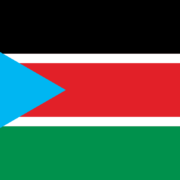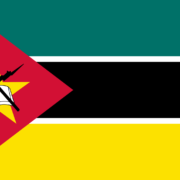East Africa
Uganda
Uganda, situated in East Africa, is renowned for its diverse wildlife, including mountain gorillas in Bwindi Impenetrable Forest and abundant bird species.
East Africa
Uganda, situated in East Africa, is renowned for its diverse wildlife, including mountain gorillas in Bwindi Impenetrable Forest and abundant bird species.
Population: 49,283,041 (CIA world factbook)
Main Religion: Christianity (84.7 % – 45% Protestant)
Training of trauma care workers
Uganda is a landlocked country in east-central Africa. About the size of Great Britain, Uganda is populated by dozens of ethnic groups. The English language and Christianity help unite these diverse peoples, who come together in the cosmopolitan capital of Kampala, a verdant city whose plan includes dozens of small parks and public gardens and a scenic promenade along the shore of Lake Victoria, Africa’s largest freshwater lake. (Brittanica) An ancient crossroads for various migrations, Uganda has as many as 65 ethnic groups that speak languages from three of Africa’s four major linguistic families. (Brittanica)
Uganda is described by Freedom House as “not free” with a score of 34/100. Political rights scored a low 10/40 and civil liberties 24/60. While Uganda continues to hold regular elections, their credibility has deteriorated. The country has been ruled by National Resistance Movement (NRM) and President Yoweri Museveni since 1986. The NRM retains power through patronage, intimidation, and politicized prosecutions of opposition leaders. Uganda’s civil society and media sectors face legal and extra-legal harassment and state violence.
There is no state religion, and freedom of worship is both constitutionally protected and generally respected in practice. However, the government seeks to limit and control political statements by religious leaders, tolerating those who support Museveni and the NRM while subjecting those with more critical views to intimidation, harassment, and arrest.
Elizabeht Kendal wrote in Religious Liberty Monitor: Two trends have converged in Uganda’s Muslim-dominated Eastern Region to make life exceeding difficult for the Christians who live there: those trends are Islamisation (the sweeping worldwide spread of Wahhabism also being felt in Uganda with increasing radicalized interpretations of Islam) and decentralisation (forming of smaller and smaller local government areas with concentrated power.) “The problem for Christian minorities in Eastern Uganda’s Muslim-dominated districts is that they are now living in a parallel reality. As vulnerable religious minorities in any one of Eastern Region’s essentially self-governed Muslim-dominated districts, they could be forgiven for forgetting that they also live in a Christian-dominated state with a Christian president and a secular constitution that guarantees freedom of conscience, expression, movement, religion, assembly and association.) Kendal explains what is compounding the crisis is the fact that persecutors seem to be guaranteed impunity. While dated, her analyses remains relevant. “While none of the Muslim-dominated districts have as yet declared themselves to be Sharia Districts, the reality is they don’t actually need to, for they already function as de-facto Sharia fiefdoms where Christians may be persecuted with impunity.”
A further worrying development is the growing activity of the Allied Democratic Forces (and ISIS affiliated group with roots in Uganda). In June, they killed 42 people when they attacked a school in the western town of Mpondwe. In October 2023, Museveni said that police had prevented an apparent ADF plot to bomb churches in the central district of Butambala.
Note: A number of Muslim clerics have been murdered in recent years, with subsequent investigations yielding few convictions. In September 2023, a man confessed to murdering a cleric in 2020.

 Mozambique
Mozambique